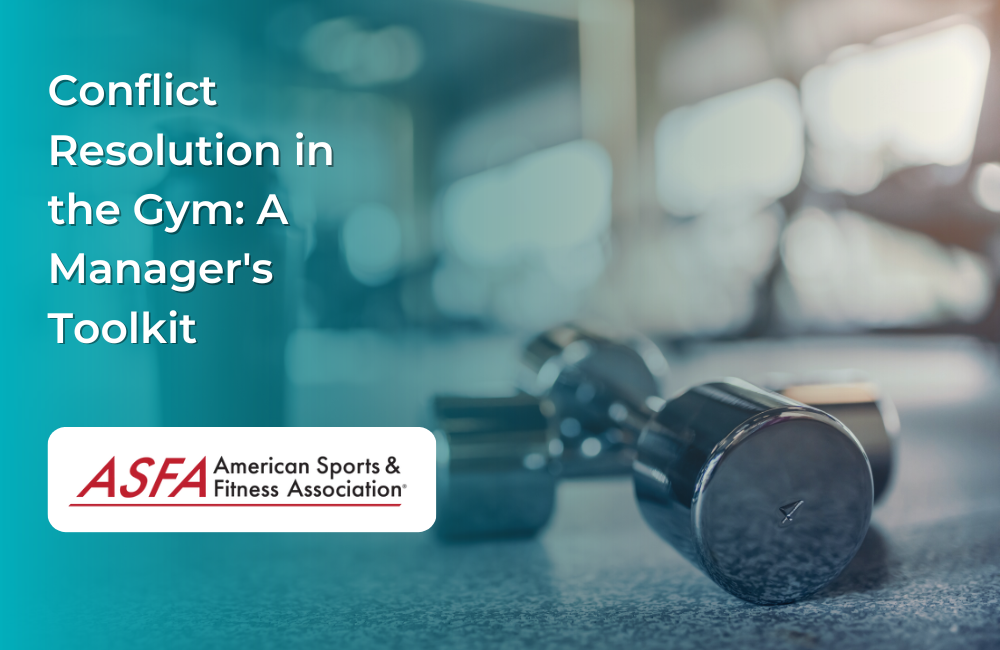Conflict is an inevitable part of managing a gym. Whether it's disagreements among staff, conflicts between members, or issues with gym policies, how you handle these conflicts can significantly impact the atmosphere and success of your fitness facility. In this comprehensive toolkit, we'll explore effective strategies and techniques for gym managers to navigate and resolve conflicts in a way that promotes a harmonious and positive environment.
Understanding the Importance of Conflict Resolution
Before delving into the toolkit, it's crucial to recognize why conflict resolution is essential in a gym setting:
- Member Satisfaction: Resolving conflicts promptly and fairly enhances member satisfaction, making it more likely that they will remain loyal to your gym.
- Staff Morale: Effective conflict resolution fosters a positive workplace environment, boosting staff morale and productivity.
- Community Building: Handling conflicts constructively contributes to the development of a strong and supportive gym community.
- Reputation: A gym known for its effective conflict resolution is likely to attract more members and maintain a positive reputation.
The Gym Manager's Conflict Resolution Toolkit
Now, let's explore a range of strategies and techniques to effectively manage and resolve conflicts in your gym:
1. Open and Transparent Communication
Encourage open and transparent communication among all parties involved in the conflict. Create an environment where members and staff feel comfortable expressing their concerns and grievances.
2. Active Listening
Practice active listening when addressing conflicts. Give individuals involved your full attention, and ensure they feel heard and understood. This helps de-escalate emotions and build trust.
3. Mediation
When conflicts involve multiple parties, consider appointing a neutral mediator to facilitate discussions. Mediators can help participants find common ground and reach mutually agreeable solutions.
4. Conflict Resolution Policies
Develop clear and comprehensive conflict resolution policies for your gym. Ensure that these policies are readily available to staff and members, and that they outline the steps for addressing conflicts.
5. Staff Training
Train your staff in conflict resolution techniques and procedures. Equip them with the skills needed to de-escalate situations and find amicable solutions.
6. Record Keeping
Maintain thorough records of all conflicts, including the parties involved, the issues raised, and the resolutions reached. These records can be valuable for reference and accountability.
7. Timely Resolution
Address conflicts promptly. Avoid delaying resolution, as unresolved conflicts can fester and worsen over time.
8. Neutral Spaces
Provide neutral spaces for resolving conflicts, away from the gym floor. This ensures privacy and minimizes disruptions.
9. Fair and Consistent Action
Ensure that resolutions are fair and consistent. Treat all parties involved with respect and equity, regardless of their position or status within the gym.
10. Follow-Up
After conflicts are resolved, follow up with the parties involved to ensure that the resolutions are effective and that all parties are satisfied with the outcomes.
11. Continuous Improvement
Regularly assess your conflict resolution processes and policies. Seek feedback from staff and members to identify areas for improvement.
12. Conflict Prevention
Implement strategies for conflict prevention, such as clear communication of gym rules, regular staff training, and proactive member engagement.
Conclusion
Conflict resolution is a vital skill for gym managers. By utilizing the techniques and strategies outlined in this toolkit, you can effectively address and resolve conflicts in your gym. Prioritizing conflict resolution not only fosters a positive and harmonious environment but also contributes to member satisfaction and the overall success and reputation of your fitness facility.





